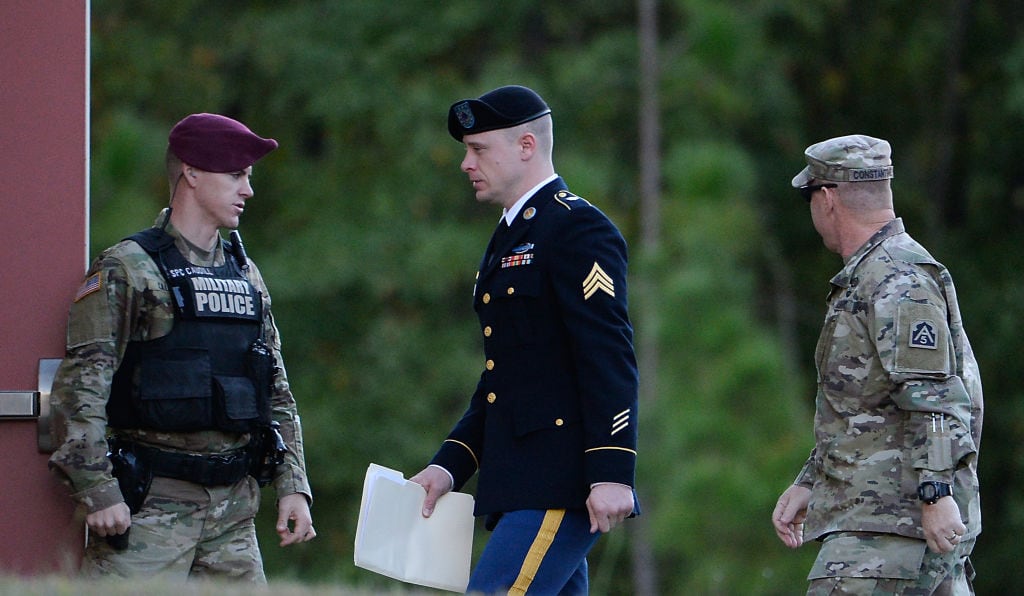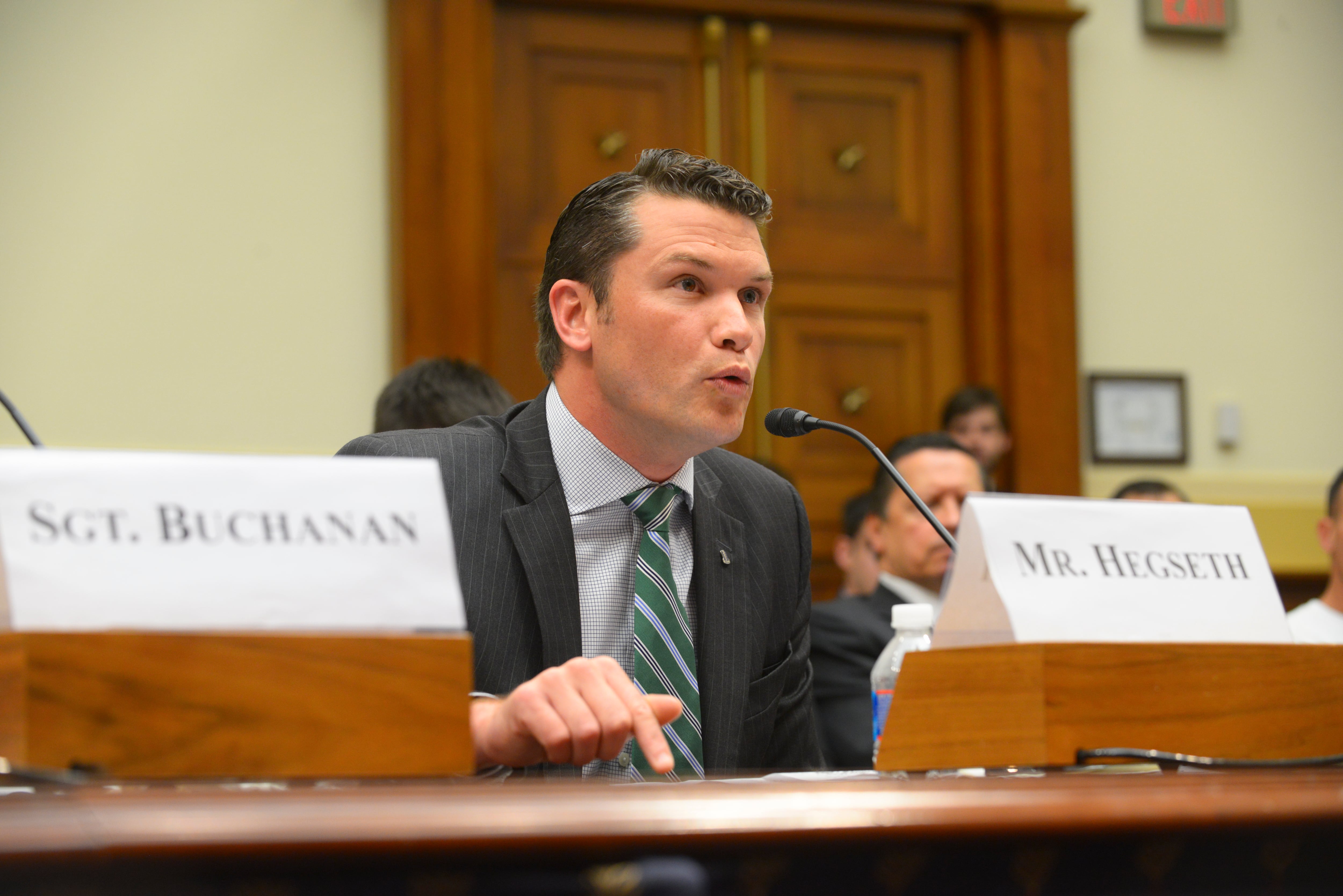The U.S. Court of Appeals for the Armed Forces has granted former Sgt. Bowe Bergdahl a review of his case to determine whether its outcome was affected by comments made by President Donald Trump or other alleged examples of unlawful command influence.
The court announced Nov. 4 that it will consider Bergdahl’s request for his sentence to be dismissed or other relief granted based on unlawful command influence. In July, the Army Court of Criminal Appeals upheld Bergdahl’s guilty plea and sentence, saying that comments made by Trump after he became president about Bergdahl, as well as those made by Sen. John McCain, did not sway the outcome of the proceedings.
Bergdahl left his post in Paktika province, Afghanistan, in 2009, was captured by a Taliban affiliate and held for five years. After he was repatriated in 2014, he pleaded guilty to desertion and misbehavior before the enemy and requested and received a dishonorable discharge. He also was sentenced to a reduction in rank to private and forfeiture of pay of $10,000.
RELATED

During the proceedings, while Trump was a presidential candidate, he called Bergdahl a "dirty rotten traitor" and suggested the soldier be executed by firing squad or thrown out of an airplane over Afghanistan without a parachute.
After he became president, Trump made several references to those comments and McCain threatened hearings if Bergdahl received no punishment.
As a result, Bergdahl's defense team, led by veteran military defense attorney Eugene Fidell, appealed, saying the comments constituted unlawful command influence and were so pervasive, Bergdahl didn't receive a fair trial or post-trial processing.
But while the comments may have been improper, Army Court of Criminal Appeals judges said, the ruling in Bergdahl’s case was “fair and unprejudiced” and should remain in place.
"There was some evidence of unlawful command influence adduced at trial and in the post-trial process," the judges wrote in their decision, but not to an extent that rose to the level of "intolerable strain" on the justice system, they added.
The ACCA decision, however, was not unanimous. In his dissent, Judge James Ewing wrote that in their argument before the court on June 27, Army prosecutors did not prove without a doubt that unlawful command influence did not taint the proceedings.
He said he would support dismissing Bergdahl’s dishonorable discharge, which would “thus purge the taint of post-trial unlawful command influence that emanated from the president’s day of sentencing tweet.”
On Nov. 3, 2017, the date Bergdahl’s sentence was announced, Trump tweeted "The decision on Sgt. Bergdahl is a complete and total disgrace to our country and to our military"
Bergdahl’s desertion launched a massive manhunt that a military judge later determined caused serious injuries to several service members involved in the search.
The human and monetary cost of the search, along with his repatriation in 2014 – the result of a trade for five Taliban members held at the military detention center in Guantanamo Bay, Cuba -- touched off a firestorm in national politics and within the ranks.
RELATED

The controversy over Bergdahl was chronicled in the second season of the podcast “Serial.”
Bergdahl told filmmaker Mark Boal that he left his post to call attention to his unit, which he felt was poorly managed. But troops continue to question his motives and blame him for placing them in danger during the search for him and causing undue stress during a period of high operations tempo.
CAAF has not set a date for the appeals hearing. With the review granted, Bergdahl’s attorneys have 30 days to file their argument, with the option to request extensions. The government then has at least 30 days plus any requested extensions, to file a response.
The CAAF then will place the hearing on the calendar, with a goal of setting the date within 20 days of receiving the government’s response.
Patricia Kime is a senior writer covering military and veterans health care, medicine and personnel issues.





